 Your new post is loading...
 Your new post is loading...
The greatest fear of parents and teachers is that the tech industry wants to replace teachers with computers. They fear that the business leaders want to cut costs by replacing expensive humans with inexpensive machines, that never require health care or a pension. They believe that education requires human interaction. They prefer experience, wisdom, judgment, sensibility, sensitivity and compassion in the classroom to the cold, static excellence of a machine.
Via Nik Peachey
Why does digital illiteracy seem acceptable in education?
... We should finally drop the myth of digital natives and digital immigrants. As I said in my blog, in the context of issuing guidance to parents about e-safety: "I'm sorry, but I don't go for all this digital natives and immigrants stuff when it comes to this: I don't know anything about the internal combustion engine, but I know it's pretty dangerous to wander about on the road, so I've learnt to handle myself safely when I need to get from one side of the road to the other." The phrase may have been useful to start with, but it's been over-used for a long time now. In any case, after immigrants have been in a country for a while, they become natives. We've had personal computers for 30 years, and I was using computers in my teaching back in 1975. How long does it take for someone to wake up to the fact that technology is part of life, not an add-on? ...
Social media can provide great tools for education. Yet, many teachers remain reluctant to use them. Matt Davis has gathered some of the best resources to help teachers get started.
Via Ana Cristina Pratas
Pinterest boasts more than 1,000 ideas about how students can self-evaluate their own learning. My Google search on the same topic offered six million results. Clearly, the resources are plentiful. But just because students can doesn’t mean they will.
How can we motivate students to want to evaluate their own learning? And how can we help them do this successfully?
Via Nik Peachey
This is the slide-deck from Nik Peachey's plenary at the 8th TED ELT conference – Surveying the Landscape of CPD at TED – in Afyon – Turkey. The plenary focuses on how teachers can and should use technological resources to access information and expertise to develop their own teaching.
Via Nik Peachey
It started with generally clunky and overpriced “student clickers” by such brands as SMART Technologies and Einstruction, and over the past few years it has transitioned into slick apps. ...
Are there computers in the classroom? Does it matter? Students, Computers and Learning: Making the Connection examines how students’ access to and use of information and communication technology (ICT) devices has evolved in recent years, and explores how education systems and schools are integrating ICT into students’ learning experiences. Based on results from PISA 2012, the report discusses differences in access to and use of ICT – what are collectively known as the “digital divide” – that are related to students’ socio-economic status, gender, geographic location, and the school a child attends. The report highlights the importance of bolstering students’ ability to navigate through digital texts.
Welcome to a country where teaching is a highly prized profession. Finland’s teachers have kept the nation near the top of the influential Pisa performance rankings since they were first published in 2001, leading to an influx of educational tourists as other teachers have endeavoured to learn from the Finnish experience. http://www.scoop.it/t/21st-century-learning-and-teaching/?tag=Finland
Via Gust MEES
We often refer to students as being ‘digital natives’ but while our students may have grown up with today’s technology, many of them do not know how to use it effectively, particularly for academic purposes. While evidence appears inconclusive about whether school libraries are in decline, owing to the online alternatives, my discussions with students indicate that in some classes they never use the library for research purposes. If this is the case with some classes, how well are teachers guiding students when conducting online inquiry?
Our responsibility, when asking students to inquire or perform any form of online research, is to teach them how to use the technology both efficiently and effectively. So, what do we need in schools to make this happen? ...
The word “mistake” is a harsh word. It implies flaws, pointing fingers, errors in judgement, something wrong and possibly even a dead end. I would rather think or connect the word “mistake” to first steps, stepping stones, experimentation and exploration. With that being said, those “first steps” or that exploration cannot become a routine cemented in stone how technology is being used in the classroom. Stepping stones are meant to lead to something else. ...
From the abacus to the calculator, the chalkboard to SMARTBoards, technology has had an immense impact on education and how students learn. However, technology is only one piece of the puzzle. Bill Gates said it best: “Technology is just a tool. In terms of getting the kids working together and motivating them, the teacher is the most important.”
But how are teachers using technology? And how are teachers maintaining expertise in the areas of teaching and new technology?
|
Vocal Recall uses QR codes to store a link to your audio feedback in a fully end to end encrypted manner. The codes can then be attached via sticky labels directly to a student’s work and the student can retrieve the feedback using an QR reader. This process saves time, is easily evidenced, allows for greater depth of feedback and engages students with a personal touch. In all trials students have much preferred this form of feedback stating that it is easier to understand and learn from their mistakes in a way that a short, written comment cannot achieve.
Via Nik Peachey
Learners want to be able to communicate effectively and often rank speaking and pronunciation and the ability to have a conversation as the most desirable language skills to acquire (Vivrette, 2010). However, even in the most communicative of classrooms, there is often an element missing – explicit instruction on intelligible second language (L2) pronunciation (Trofimovich & Isaacs, 2016). Research indicates that many L2 learners are not getting enough pronunciation support in the typical language classroom (Lord & Fionda, 2013). Speech technology provides novel pronunciation development opportunities for language learners. In this article, the free pronunciation resources Forvo and NetProF are presented and compared.
If a classroom gets iPads, a question you will often hear immediately is, “What apps should I download?” In our concern for machines taking over education, we often do things that enco…
Dive into the rich world of Shakespeare with full-text, interactive editions of his plays. myShakespeare replaces traditional footnotes with multimedia resources for the 21st-century student.
Via Nik Peachey
A balanced article with both pros and cons.
Med Kharbach lists 10 essential social media skills for teachers of all sorts in a creative infographic, based on an article by Doug Johnson.
In the previous post (part 1 of 2), we explored the fact that student response apps (Socrative, Kahoot!, Plickers, etc.) are often mislabeled as “formative assessment tools.” What makes them format...
Editors' Note: We asked San Jose high school sophomore Audrey Mullen to share how she and her peers actually use various edtech tools and how they really feel about their teachers’ blended learning approaches. The result is a straight-from-the-source playbook that no blended teacher--or entrepreneur--will want to skip. ...
Digital technology such as tablets can help teachers and students rediscover traditional ways of learning by using touch, movement, sound, and visuality.
Free resource of educational web tools, 21st century skills, tips and tutorials on how teachers and students integrate technology into education
Vicki Davis: I thought I could read my students' body language. I was wrong. As an experiment, I used Socrative when I taught binary numbers. What I learned forever changed my views on being a better teacher. With tools like Socrative, Kahoot, Zaption, Chatzy, and Plickers, teachers can use tech for immediate feedback about how students are learning and understanding the lesson. ...
|



 Your new post is loading...
Your new post is loading...













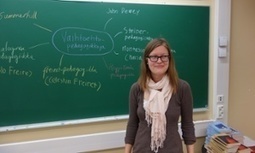



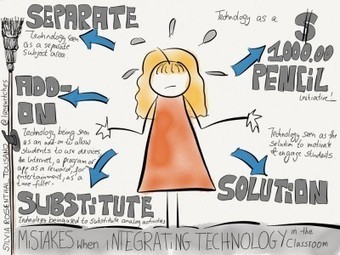


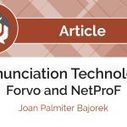
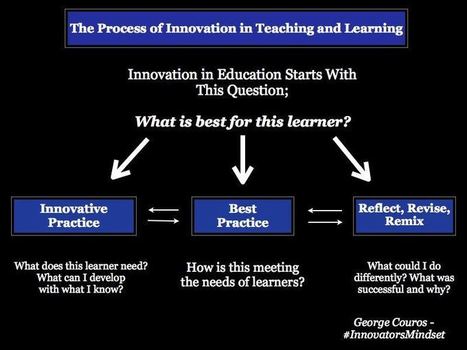


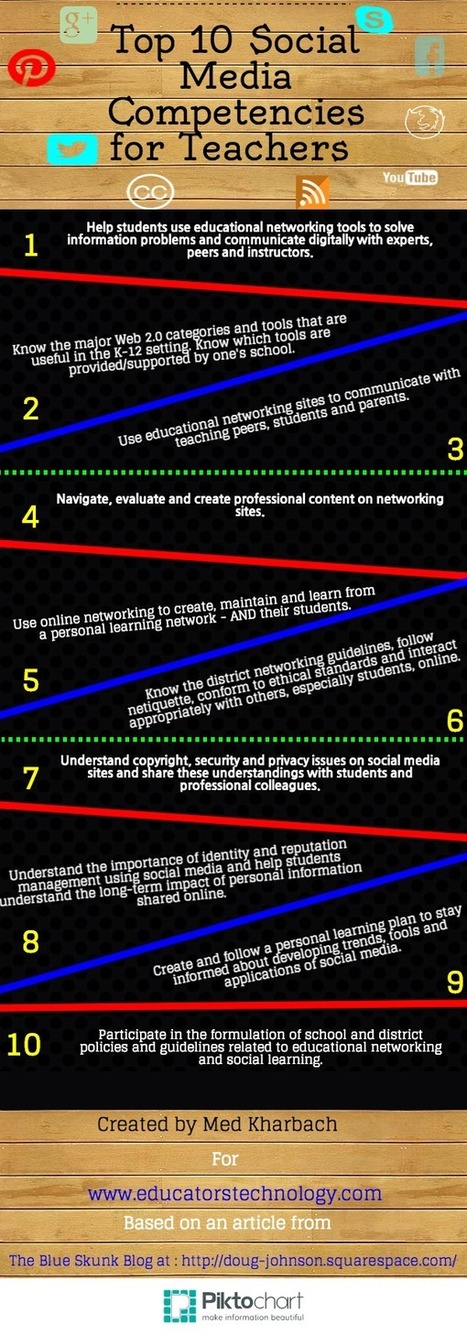
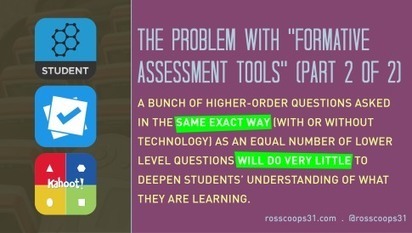


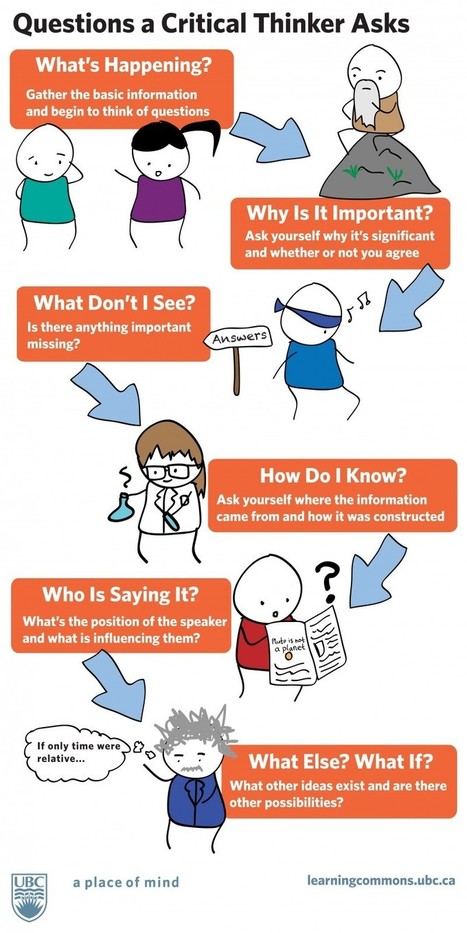







Interesting reading.